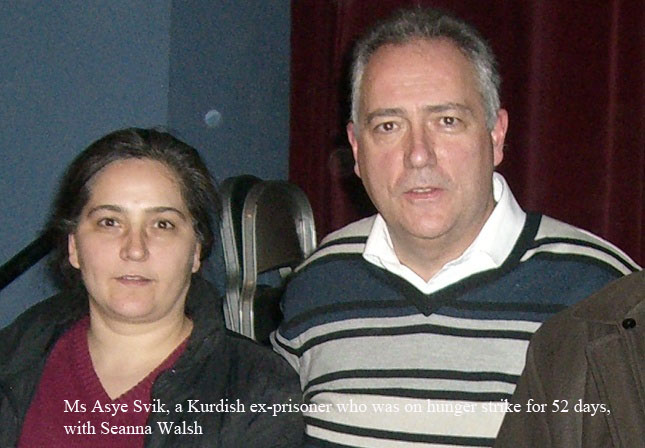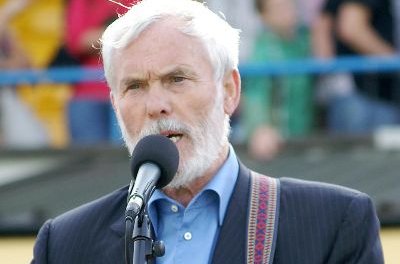Despite protests and vigils across London against the Israeli war on the Palestinian people drawing large numbers of activists, there was still a good turnout – 200 people – for last Saturday afternoon’s screening of ‘Hunger’, followed by a talk given by former IRA prisoner Seanna Walsh.
‘Hunger’ was shown in the Rio Cinema, Dalston, and there was hardly a sound until the end of the film. Dalston has a large Muslim population and Diane Abbot is the local Westminster MP. The crowd was made up of a mixture of Irish and London-Irish, active on the politics of Ireland; people from a variety of progressive solidarity groups and causes; and lawyers and barristers who are interested and active in human rights cases in Britain and further afield.
“One of the most interesting groups,” says Seanna Walsh, “were from Turkey, both Turks and Kurds, some of whom have suffered terribly at the hands of the Turkish state forces. One woman had suffered 52 days on hunger strike in one of Turkey’s infamous F-Block prisons.”
After the film there was a broad discussion which ranged from Belfast to Gaza, from the partition of Ireland to the Good Friday Agreement. One audience member asked what lessons could be learned from Ireland. Seanna Walsh made the case that any solution required political pressure on Israel to commit to non-military means and a willingness to negotiate with Hamas as the elected representatives of the Palestinian people.
“There were questions about where we are at now, the power-sharing coalition with the DUP and of course our hopes and plans for a united Ireland.”
The audience was well pleased to be informed of the current situation in the struggle. The postcards produced by the Bobby Sands Trust were quickly snapped up with requests for further information about Bobby and the other hunger strikers.




